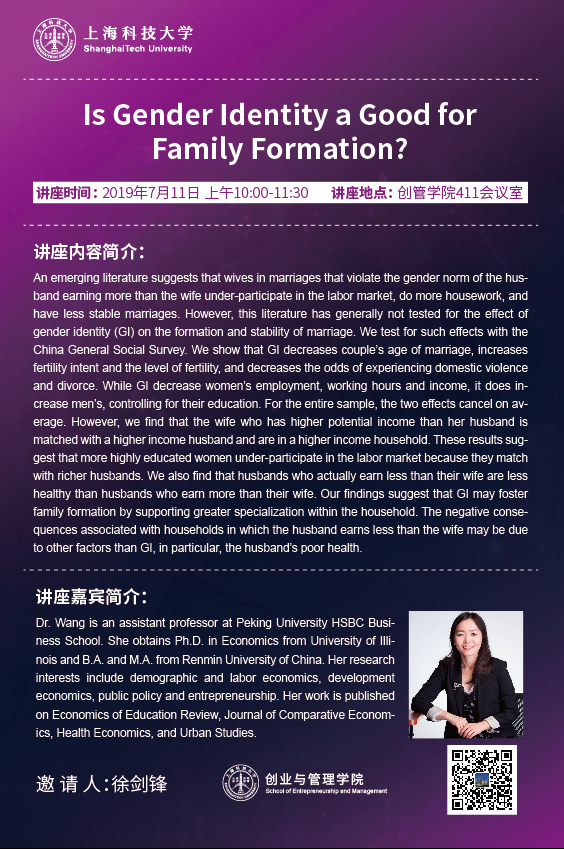Date & Time:July 11, 2019 10:00 - 11:30a.m.
Venue:SEM411 Meeting Room
Speaker:Qing Wang(Peking University HSBC Business School)
Inviter:Jianfeng Xu
Abstract:
An emerging literature suggests that wives in marriages that violate the gender norm of the husband earning more than the wife under-participate in the labor market, do more housework, and have less stable marriages. However, this literature has generally not tested for the effect of gender identity (GI) on the formation and stability of marriage. We test for such effects with the China General Social Survey. We show that GI decreases couple’s age of marriage, increases fertility intent and the level of fertility, and decreases the odds of experiencing domestic violence and divorce. While GI decrease women’s employment, working hours and income, it does increase men’s, controlling for their education. For the entire sample, the two effects cancel on average. However, we find that the wife who has higher potential income than her husband is matched with a higher income husband and are in a higher income household. These results suggest that more highly educated women under-participate in the labor market because they match with richer husbands. We also find that husbands who actually earn less than their wife are less healthy than husbands who earn more than their wife. Our findings suggest that GI may foster family formation by supporting greater specialization within the household. The negative consequences associated with households in which the husband earns less than the wife may be due to other factors than GI, in particular, the husband’s poor health.
Speaker Biography:
Dr. Wang is an assistant professor at Peking University HSBC Business School. She obtains Ph.D. in Economics from University of Illinois and B.A. and M.A. from Renmin University of China. Her research interests include demographic and labor economics, development economics, public policy and entrepreneurship. Her work is published on Economics of Education Review, Journal of Comparative Economics, Health Economics, and Urban Studies.




